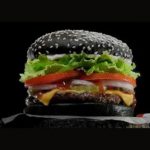 Mysteries
Mysteries  Mysteries
Mysteries  History
History 10 Surprising Stories About the Texas Rangers
 Humans
Humans 10 Philosophers Who Were Driven Mad by Their Own Theories
 Miscellaneous
Miscellaneous 10 Video-Game-Worthy Weapons and Armors from History
 Weird Stuff
Weird Stuff 10 Psychics Who Accurately Predicted Wartime Events
 The Arts
The Arts 10 Pieces of Art Inspired by a Broken Heart
 Health
Health 10 Science Fiction-Sounding New Medical Treatments
 History
History 10 Surprising Facts About the Father of Submarine Warfare
 Space
Space Ten Astonishing New Insights into Alien Worlds
 Weird Stuff
Weird Stuff 10 Bizarre Summer Solstice Rituals Still Practiced Today
 Mysteries
Mysteries Top 10 Haunting Facts About the Ghost Ship MV Alta
 History
History 10 Surprising Stories About the Texas Rangers
 Humans
Humans 10 Philosophers Who Were Driven Mad by Their Own Theories
Who's Behind Listverse?

Jamie Frater
Head Editor
Jamie founded Listverse due to an insatiable desire to share fascinating, obscure, and bizarre facts. He has been a guest speaker on numerous national radio and television stations and is a five time published author.
More About Us Miscellaneous
Miscellaneous 10 Video-Game-Worthy Weapons and Armors from History
 Weird Stuff
Weird Stuff 10 Psychics Who Accurately Predicted Wartime Events
 The Arts
The Arts 10 Pieces of Art Inspired by a Broken Heart
 Health
Health 10 Science Fiction-Sounding New Medical Treatments
 History
History 10 Surprising Facts About the Father of Submarine Warfare
 Space
Space Ten Astonishing New Insights into Alien Worlds
 Weird Stuff
Weird Stuff 10 Bizarre Summer Solstice Rituals Still Practiced Today
Ten Restaurants with Disturbing Pasts
Restaurants serve as a comfortable place for people from all walks of life to grab a bite to eat or try expanding their palette. American advertising would be almost unrecognizable without the bold logos of various fast food chains emblazing signs and billboards, enticing customers to order a familiar and comforting salty meal. Aside from the chains, many cities rely on the buzz that unique restaurants within their limits have to offer tourists, attracting them in droves to try the newest trends in culinary fare.
However, not all eateries are as we predict, and many familiar chains and locations bear dark and disturbing pasts that are often hushed in the public eye. Here are ten such restaurants that have been historically riddled with controversy.
Related: 10 Businesses Too Big to Fail That Totally Flopped
10 Waffle House
Waffle House is a staple road-trip chain for residents of the Southern U.S., and their hearty breakfast and diner fare make them a popular choice for travelers on the go or those looking to grab a late-night meal. However, Waffle House is also notorious due to the incredibly high rate of violent crime that has happened in their restaurants, with a particular trend toward robberies and murders.
One such instance occurred in 2018, when on April 22 at a Waffle House in Nashville, Tennessee, a man named Travis Reinking pulled up to the restaurant, took out an assault rifle, and began to fatally shoot patrons standing outside its doors. He then entered the restaurant and opened fire in the dining room filled with patrons. The entirety of the attack was caught on surveillance footage, and Reinking was only subdued when a brave patron tackled him to the ground and wrestled away the gun, causing him to flee. While he was eventually captured and brought to justice, four people lost their lives in the attack, and two were seriously injured.
This is one of over seven shooting incidents in Waffle Houses across the United States within the past five years, making it a household name in terms of dangerous places to dine.[1]
9 Heart Attack Grill
Located in Las Vegas, Nevada, the Heart Attack Grill is a novelty restaurant whose claim to fame is its monstrously large portions and the high salt, fat, and caloric value of its menu items. Offering immense burgers stacked with up to eight patties and containing nearly 20,000 calories each, Heart Attack’s menu is rounded out with sides of fries cooked in pure lard, the ever-present alcoholic drinks, and what they proudly call “butterfat” milkshakes.
The restaurant hasn’t been shy of controversy since its opening, with many saying that it glorifies obesity, especially due to its policy that those who weigh in at 350 pounds (163.3 kilograms) or more before their meal eat for free. The restaurant’s name comes from what they boast as what may result from eating their food, with servers cheekily dressed like nurses in case of “emergency.” However, this tongue-in-cheek humor loses its appeal when one learns that people have suffered heart attacks right in their dining room while chowing down on one of their “bypass burgers.”
In February 2013, 52-year-old restaurant patron John Alleman had just made it out the front door to wait for the bus after indulging in one of the restaurant’s burgers when he suddenly collapsed to the ground and passed away from what officials declared a heart attack.
To make things worse, this was not the first time that a customer had suffered heart issues as a result of the restaurant’s food, with two separate incidents the previous year sending patrons to the emergency room in serious condition. Restaurant spokesman Jon Basso’s response to pleas from medical agencies to shut down the restaurant was to acquire one of these customer’s cremated remains and display them at the restaurant as a sort of badge of honor.[2]
8 Domino’s Pizza
Domino’s Pizza may be a familiar and beloved pizza delivery chain to customers across North America, but the chain has a dark side that few know of. Back in the ’80s, the marketing team at Domino’s decided to create a mascot to fit the brand’s advertising campaign. They came up with the Noid, a sort of man-rabbit hybrid with signature buck teeth. The introduction of this character proved a great success for the business, shooting sales up to levels competitive with rival Pizza Hut. Still, its runtime was quickly cut short when an incident a few years later brought a stain upon the Noid’s name.
At noontime on January 30, 1989, a man by the name of Kenneth Noid burst through the doors at Domino’s in Chamblee, Georgia, wielding a .357 revolver. Demanding $100,000 in ransom money, Noid took two employees hostage, resulting in a standoff that lasted over five hours. Noid felt that the company’s popular commercials were intended as a personal insult to him.
Nobody was hurt in the incident, and while Noid was brought before courts, he was acquitted of all charges by reason of insanity. This caused a media frenzy, turning the profitable Noid into a PR crisis. To make matters worse, Kenneth Noid would commit suicide years later, still convinced that the mascot was intended to insult him. Following this, Domino’s pulled the character, desperately trying to avoid the association between their pizza and violent crime.
To further this, Domino’s drivers have been known to fall victim to set-up robberies, with an incident in 2022 in Detroit resulting in the murder of a delivery driver.[3]
7 Arby’s
When biting into a tasty roast beef sandwich, the last thing a customer would expect (or want) to find is a human finger! However, in one such instance at an Arby’s in Michigan, a 14-year-old boy was biting into a Junior Roast Beef when he struck something tough and fleshy. It turned out to be the bottom of an employee’s finger, who had failed to report that they’d accidentally sliced it off in the store’s meat slicer. The Atlanta spokesman for Arby’s apologized, describing the situation as “unfortunate.” However, despite the circumstances, the chain was allowed to continue serving the public after a thorough cleanup.
This is not the first time, unfortunately, that Arby’s has come under fire for human body pieces being found within their food. In an earlier, separate incident, a man from Tipp City, Ohio, sued his local Arby’s after biting into a sandwich and finding a piece of flesh that was described to be “about three-fourths of an inch long.” In a similar manner to the previous case, the restaurant manager had sliced the skin off of his finger when chopping lettuce and failed to throw out the container that it fell into.
The company representatives continued to stand behind their employees in this instance, stating that the manager “did destroy product that was in and around the slicer immediately, and did everything that he thought was appropriate to do.” Clearly, all Arby’s customers should take a close look at the meat in their sandwich before delving in.[4]
6 Comet Ping Pong
This next case may seem familiar, especially for those who have heard the term “Pizzagate.” In 2016, during the lead-up to the U.S. presidential election, a wave of posts by alt-right extremists flooded social media, falsely claiming that Comet Ping Pong, a pizzeria located in Washington, D.C., was conspiring with Hillary Clinton in running a child sex trafficking ring and that it was a meeting ground for satanic rituals. This resulted in numerous people publicly denouncing the pizzeria, and the restaurant owner’s personal information was leaked online. As the buzz surrounding the place escalated, the tensions did as well.
Fueled by conspiracy theories, a man named Edgar M. Welch drove six hours to the pizza place, determined to see the truth for himself. He burst into the store to “save the victims” of these rings, toting an AR-15-style assault rifle and a handgun and fired off a round into the busy restaurant.
Miraculously, nobody was hurt, and despite trying to argue that he was simply trying to save enslaved children, Mr. Welch was charged with four counts, including carrying a gun without a license and assault with a deadly weapon. The pizza joint never lived down the swirl of rumors, which demonstrates just how far online hate campaigns can go and the real-life damage they can potentially incite.[5]
5 Adamson BBQ, Toronto
When one thinks back to the height of the COVID-19 pandemic, thoughts of sold-out toilet paper and mandatory masking come to mind. There’s nothing that incites panic like a pandemic, and most businesses were more than willing to comply with restrictions put in place surrounding social distancing. That is, except for one Toronto barbecue joint called Adamson BBQ.
The owner of the location, Adam Skelly, refused to close the joint to in-person dining during the restrictions despite the risks that posed to the public. Skelly received repeated summons from the government to close operations, which he refused, reopening the next day after Toronto Public Health came to shut down the joint. It took the organization having to padlock the doors shut for the restaurant to finally cease operation. This is after Skelly was charged nine times for bylaw violations, with his bill at the end totaling $ 187,000 in fines.
It later came out that Adamson BBQ had been actively operating without a business license for four years, had a history of skirting public health code violations, and owed roughly $ 50,000 in unpaid rent. Despite his restaurant finally being shut down and himself being arrested, Skelly continued to post anti-lockdown propaganda to the restaurant’s Instagram. He filed a constitutional challenge against the city for the pandemic restrictions.
Rumors swirl that he may be planning a comeback, with the restaurant’s Instagram bio reading, “No more BBQ, V2 coming soon.” With his track record, it would be unsurprising if he follows through, but diners be warned: This is a man willing to cut corners to prove a point.[6]
4 Subway
Subway, known as the largest chain restaurant in the United States in terms of the number of locations, is also known to have a somewhat spotty past. The greatest scandal is one well known, and Subway has had a hard time living it down in the years since. Seeking to brand itself as a healthy alternative to fast food, Subway was delighted to learn that Jared Fogle, a man from Indiana, had embarked on a weight-loss journey in which he subsisted solely on Subway sandwiches for a year.
Fogle’s plan worked remarkably well, causing him to lose 245 pounds (111 kilograms) in that timeframe. Subway hammed him up in the media, declaring him a spokesman and the face of their healthy eating campaign. However, this would soon turn rotten. After a woman in 2014 accused Fogle of attempting to send her child pornography, his house was raided by police. Fogle pleaded guilty to possession and distribution of child porn and traveling to other states to have sex with a minor. He is still serving his 15-year sentence. Clearly, Subway failed to vet their spokesman.
Something further smelled fishy with Subway, or perhaps not. Dubbed TunaGate, Nilma Amin of Colorado sued Subway, claiming that their tuna subs partially or wholly lack tuna at all. She cited a study done by a marine biologist who found that upon extracting DNA, “there were no detectable tuna DNA sequences whatsoever” within the tuna at Subway.
What’s more, after Subway outright denied these allegations, a federal judge found that the case could go ahead regardless. This is not the first time that Subway’s products have been under the microscope either, with a Canadian investigative consumer program conducting a further DNA study, which found that Subway chicken, when tested, is only half meat, with the other half being soy. Clearly, Subway needs to be more authentic, quite literally.[7]
3 Don Diego

Jumping across the pond, the town of Sutton-Coldfield in Birmingham, England, was shocked when the owner of the tapas bar, Don Diego, was arrested and charged with attempted murder. Ahmet Dincer was paranoid, believing that two of his employees, Carlos Tirado and Monica Lopes, were plotting a revolt to take down his restaurant.
The two had quit recently amid protest after failing to receive their wages. So, out of what Dincer called revenge, he called them to a meeting in his office, where he proceeded to bash Tirado with a baseball bat, sprayed him with CS spray, and shot at him with an air pistol. The attack was so aggressive that CCTV video showed the bat snapping in half.
Tirado managed to fend him off by throwing a chair and wine bottles, and the two fled to the restaurant next door. Upon being arrested, Dincer refuted claims that he intended to kill the pair, saying, “Let’s not cheat anyone here; if I wanted to kill them both, I could have.” Apparently, since he had not brought a gun, Dincer felt that the attack did not show an intent to kill.
Dincer had also poured accelerant over the grounds of the restaurant after the attack, attempting to light the place ablaze but ultimately failed to do so. He was charged with two counts of attempted arson, as well as attempted wounding with intent. Be careful who you work for at restaurants, folks.[8]
2 Denny’s
At Denny’s, you might seek a stack of fat, tasty pancakes, but alongside them, you might encounter… racism? Denny’s has had a problematic past when it comes to discrimination in their restaurants. In the ’90s, complaints were launched by thousands of customers across California Denny’s, claiming civil rights violations. Thirty-two of them sued the chain, citing a “discriminatory corporate culture.”
In one particular instance, a group of Black students at a San Jose Denny’s were asked to prepay for their orders and pay a cover fee before sitting down. However, they brought classmates with them who were white, and they were not asked to do the same. Further, a 13-year-old girl was denied the well-known free birthday meal at another California Denny’s. Even when she presented her baptismal certificate to prove her age, the chain declined to provide her the meal.
A final lawsuit occurred when a group of Black secret service agents went to Denny’s with their white colleagues and were seated separately and ended up waiting an extra hour for their meal than their white counterparts. The men angrily got up and left before filing a complaint. With this and the previous allegations, they were racking up the complaints. With 32 people launching suits across the country, Denny’s was forced to pay out $54 million in settlement funds. Since then, Denny’s has done a major upheaval of its diversity policies, considering the stain this left.[9]
1 El Parian Restaurants
The final series of restaurants that harbor an untoward past are the El Parian Mexican Restaurants—a brand local to Minnesota—that was shut down due to being revealed as drug fronts, as well as covers for an elaborate money laundering scheme.
In true Breaking Bad fashion, owner Aldo Escoto and two co-defendants were charged with not only possession and distribution of illegal substances, but the three also used the restaurants to harbor and staff undocumented immigrants. Apparently, these Honduran civilians “were willing to work long hours for multiple days at a time,” which made them attractive employees for the pair.
The whole operation of the restaurants was said to have been paid for with illegal drug money, according to a federal indictment, which was therefore used as a cover to flush through illegally earned cash. The workers were paid only in cash, and Escoto even purchased properties for them to live in order to continue the scheme.
According to the indictment, drugs were also sold and dealt directly out of these restaurants at the same time. The good news in all of this, however, is that the stores were sold to new owners upon the trio’s arrest. So, if you run into an El Parian, you won’t have to worry about finding any secret spice in your tacos.[10]








